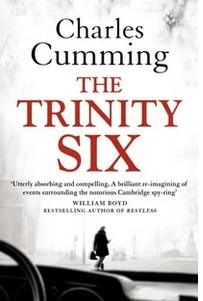
‘Nobody knows more about Russia than you’ (p. 33). So Dr Sam Gaddis, the hero of Charles Cumming’s fifth novel, is told.
Part-way through The Trinity Six, Russia in Fiction was less impressed with Gaddis, being more inclined along the lines of
‘Blimey – Dr Sam Gaddis gives academics a bad name. He is so slow, as if he’s never read a thriller in his life. Every coincidence that happens, he accepts unquestioningly. He completely fails to read the situation.’
Happily Gaddis improved, and with him the novel, which is a relatively complex example of the ‘secrets from history which must never come to light’ genre.
Dr Sam Gaddis is
a senior lecturer in Russian history at University College London. His normal beat was Pushkin, Stalin, Gorbachev.
The Trinity Six, p. 6
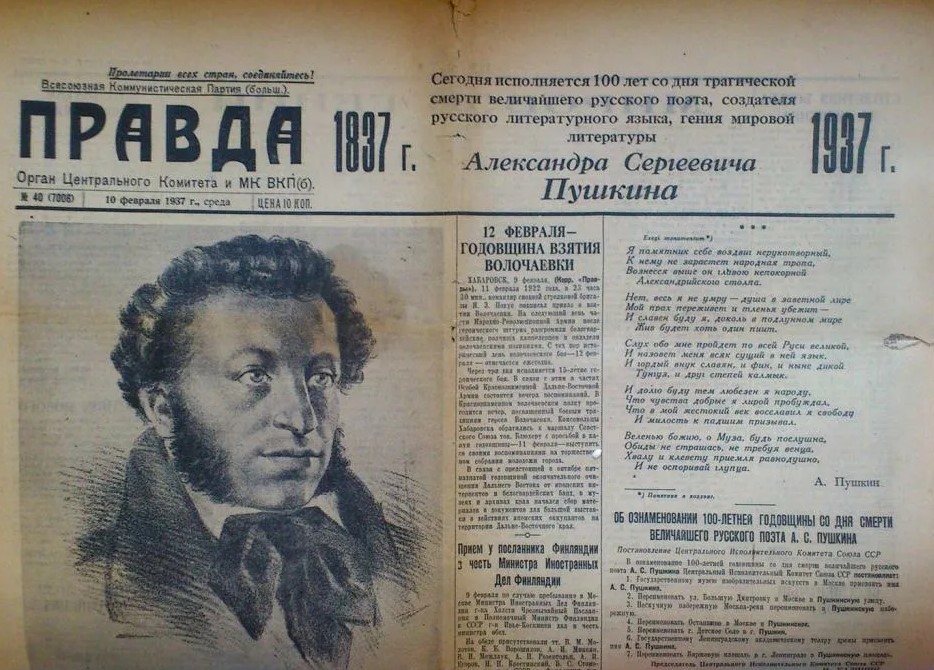
In the words of the inside cover blurb of The Trinity Six, Sam Gaddis is a ‘hard-up Russia expert’, fed up with writing academic work which no one reads.
Been there. Done that.
But unexpectedly Gaddis stumbles across evidence that will reveal ‘the sixth man’ – a Soviet spy from the Cambridge spies generation, who went undiscovered.
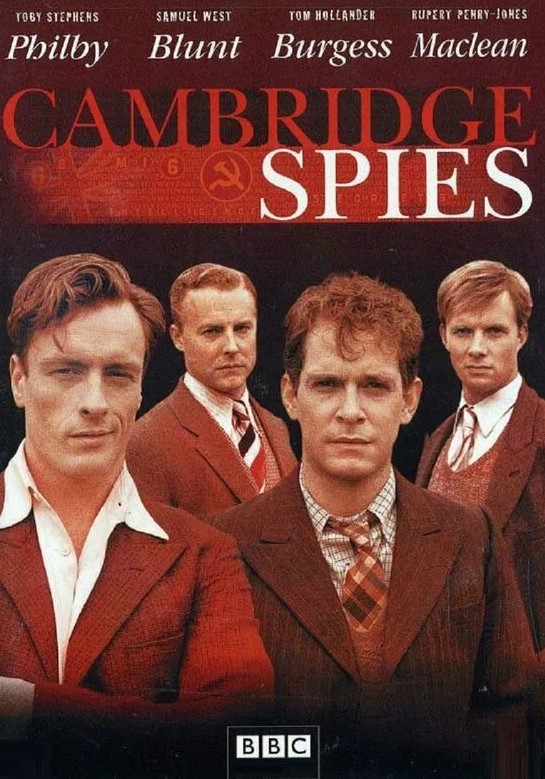
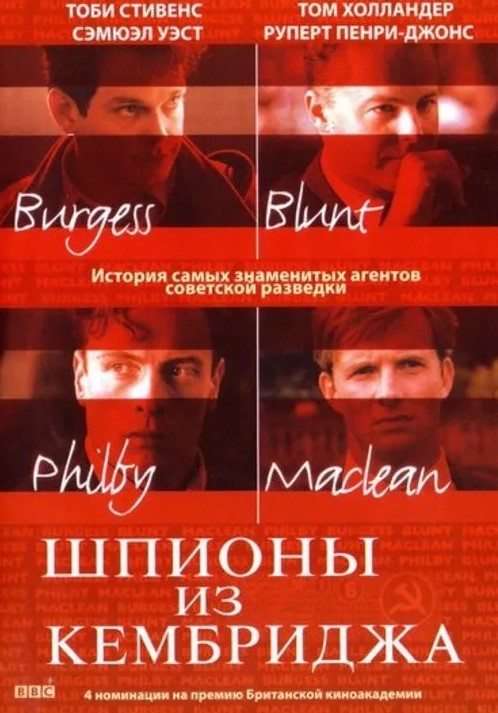
Gaddis’s hunt leads to Moscow and across Europe. In true thriller fashion, not everyone is as they seem. We know that, because we have read lots of thrillers.
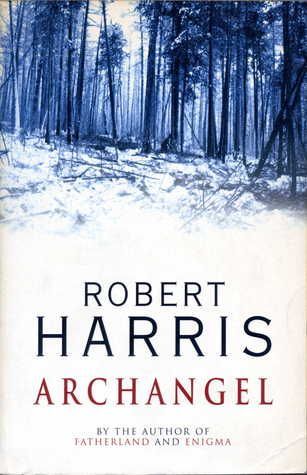
But for too long Sam Gaddis doesn’t seem to realise; even though, in a cheeky reference to the other thriller of which this most reminds us, he reads Robert Harris’s Archangel on an overnight train journey.
In the first couple of chapters several things happen that would make anyone who had even glanced at a Russia-in-fiction thriller suspicious. Three huge events come one after another within a single week.
First, at his own sparsely attended book launch, a beautiful young woman makes an entrance, collars him at the end, and invites him back to her flat, tempting him with boxes of archival documents relating to the KGB and ‘promising him something with those huge blue eyes’ (p. 16).
Gaddis … arranged to go to Chelsea to pick up the boxes. Five minutes after walking through the door of her flat on Tite Street he was in bed with Holly Levette.
The Trinity six, p. 18
Second, within a couple of days of his liaison with Holly Levette, Gaddis gets an unexpected tax demand from the HMRC and a request for money ostensibly from his ex-wife, together plunging him into debt way beyond his means, and causing him to think of ways to earn more money.
Third, he then dines with one of his best friends, who happens to be an investigative journalist working on a Russian spy story that has crossovers with the archival documents that he has been given out of the blue. Over dinner, they initiate a plan to write a book together on Russia and spying and that sort of stuff that will hopefully solve his financial worries. The next day, his friend suddenly dies, and her husband encourages Sam to carry on with the book project. (The reader knows that she is poisoned by a Russian assassin. Gaddis doesn’t).
Yet somehow Gaddis initially treats this extraordinary series of events at face value, as if they were unconnected. Stop it, Sam! You might be a dull academic, but even the dullest of us academics might twig that this week to cap all weeks can probably not be put down to coincidence.
Then there is a moment, identifiable to the page —the page number of which has three figures— when the penny drops, and the novel takes off.
In the early pages, Cumming introduces us both to President Platov and to Gaddis.
When it comes to Platov, Cumming deploys the standard western thriller writer view of contemporary Russia. Big, bad Russia, ruled over by an authoritarian former-KGB agent and his cronies. Russia in Fiction does not quite buy the concept, but we do like Cumming’s neologism espiocracy. Overall, there is not a lot of nuance in the picture of Russia presented. Cumming also goes for the fairly standard trope of a Russian president who from the biography presented is clearly Putin, but not named as such. His president is called Sergei Platov.
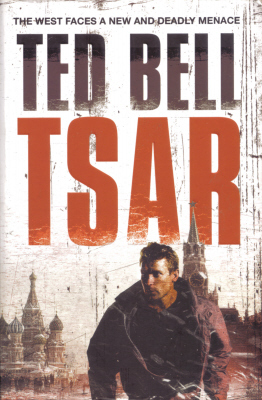
The Platov mini-biography set out in The Trinity Six represents another of those pen pictures of a fictional Russian president who has lived the same life as Vladimir Putin; see for example, President Rostov in Ted Bell’s Tsar.
And reference is made, again with a name change, to the murder of journalist Anna Politkovskaya, shot in the elevator in her block of flats in 2006.
Platov was a stain on the Russian character, a borderline sociopath who had, in less than 10 years, destroyed the possibility of a democratic Russia. A former KGB spy, he had green lit the murder of Russian civilians on foreign soil, held East European countries to ransom over the supply of gas, and encouraged the murder of journalists and human rights activists brave enough to criticise his regime. One such journalist – Katarina Tikhonov – had been a good friend of Gaddis’s. … She had been shot in the elevator of her apartment building three years earlier.
… Platov’s grandfather worked as a chef for Joseph Stalin.
The Trinity Six, pp. 11-12
And Platov, like Putin, served as a KGB agent in Dresden in the 1980s.
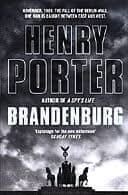
Henry Porter’s portrayal of Putin in Dresden in his excellent Brandenberg (2005) is nuanced as the character seeks to make sense of the changing world around him, with Communism collapsing at the end of that decade.
Cumming’s Platov figure similarly struggles to decide how to react the end of the regime that he has served.
As for the lead character of The Trinity Six, Dr Sam Gaddis, despite our annoyance that he takes so long to twig what is going on, Russia in Fiction warmed to him because we share elements of his take on academic life in Britain today.
Gaddis’s latest book is called Tsars
a comparative study of Peter the Great and the current Russian president, Sergei Platov … A book that he was proud of. It amounted to a sustained attack on the Platov regime, an attack which he had tried to condense, as succinctly as possible, into a 750-word op-ed in the Guardian which had appeared three days earlier.
…
Gaddis wasn’t particularly interested in cultivating a public image. Four years earlier, for example, he had published a biography of Trotsky which had been enthusiastically talked up on Radio Four. An enterprising young television producer had invited him to screen test for a series of programmes about ‘great revolutionary figures’. Gaddis had declined.
…
His friends and colleagues had thought it was a missed opportunity. What was the point of being a successful academic in 21st-century Britain if you didn’t want to appear on BBC4?
The Trinity Six, pp. 9-11
The Trinity Six is an easy and enjoyable read, with a not too neat conclusion. Not Cumming’s strongest work —we used to say that that was definitely his first novel A Spy By Nature (2001), until last month we read the superb BOX 88 (2020) which raises the game almost to ‘the new le Carré’ status.
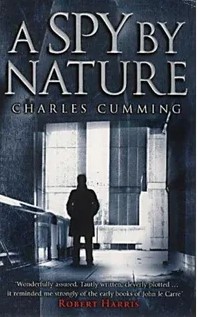


Russia in Fiction will not be reviewing BOX 88, because it is not about Russia. But its sequel, JUDAS 62, due for publication next week, most definitely is Russo-centric. Russia in Fiction very much looks forward to that particular pre-order arriving.